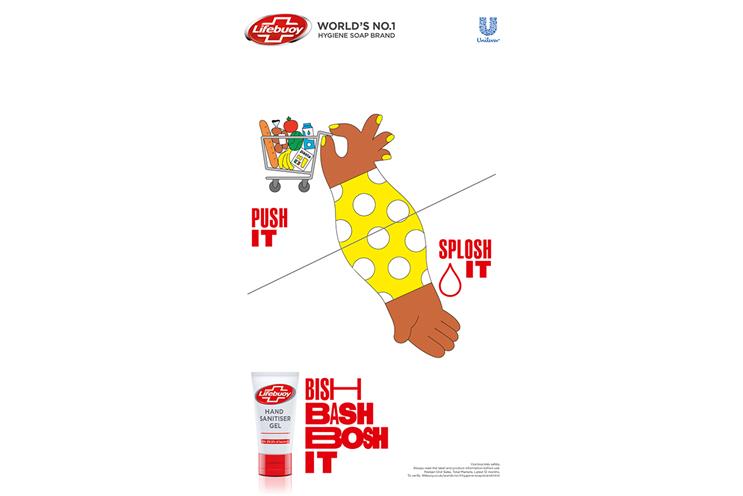
Hygiene soap brand Lifebuoy relaunched in the UK in August 2020, as people were slowly returning to more active lives post-lockdown. It wanted to offer a public service to the UK at a time of need and support long-term behaviour change around hand hygiene.
Data had shown that in the pandemic’s early stages, hand-washing and sanitising rates had more than doubled, but past data from previous diseases showed the rate could easily slip back. Lifebuoy wanted to sustain that early doubling in the rate of handwashing and sanitising. The campaign was themed around ‘If we can spot it, we can Bish Bash Bosh it.’
Key hand sanitising moments that in-home media alone couldn’t reach were identified, with the strategy to target people’s out-and-about daily routines when they should be sanitising their hands but could easily forget. The routine people would return to at scale after a national lockdown was the big unknown.
Lifebuoy created The Infection Protection System data engine. It fused Government infection data by region with Blis first-party mobility data signals, to identify heightened moments of need. Analysis of government data helped pre-identify regions that were moving into higher risk of infection, while mobile data indicated when the target audience were returning to certain daily activities at scale. Each week the campaign was replanned, using the previous five days’ insights, to ensure cut-through in the most at-risk regions and places.
Judges said the campaign used data to impact not only targeting but also creativity, creating a campaign that resonated with the public's habits/daily life. They said the campaign showed ‘a great use of data and collaboration in a challenging, fast-moving period.’
Silver:
'Starcom and Asics: Winning the UK’s race for freedom', by Performics at Starcom for Asics
Bronze:
'Settling the biggest debate in search marketing', by Spark Foundry UK for Asda
Take me back to the Media Week Awards winners list

